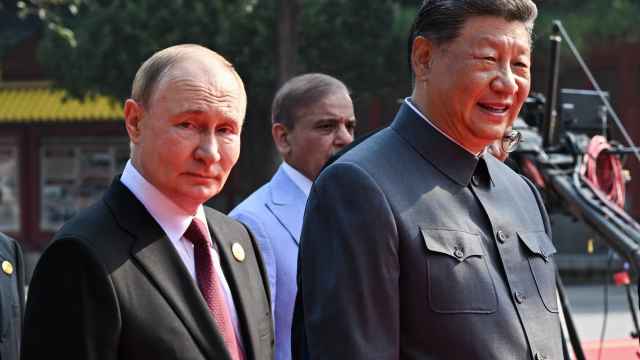Tempting as it may be, it would be wrong to write off Europe as yesterday's power. Europe still matters even though this is not the message some European Union policymakers have been sending out to a watching world.
The impression that Europe is too busy dealing with internal challenges to play a strong global role is especially pervasive in Asia. True, China gets a great deal of EU attention, and the EU's outreach on trade remains strong. But there is more to Asia than China — and trade and investment agreements must not be made a substitute for a more pro-active EU foreign policy.
The EU must engage more strongly with South Asian and Southeast Asian countries on foreign policy and security questions, not just trade. This means top-level EU participation in Asian security fora such as the ASEAN Regional Forum, or ARF. It means showing up and seriously participating in ministerial meetings with Asian countries such as the EU-ASEAN gathering of foreign ministers in Brunei in April. It also requires regular and consistent high-level conversations on global and regional challenges with India and other South Asian nations.
Apart from trips to China, EU foreign policy chief Catherine Ashton has been a rare visitor to the rest of Asia. Her decision to stay away from the ARF last year, for a second year running, was a serious faux pas. Not surprisingly, Asians have put Europe's request to join the East Asia Summit — the region's prime security club — on hold and insist that Europeans must first prove they are ready for a serious conversation with Asia on security.
European policymakers are selling Europe short. Asia cannot take Europe seriously unless it does a better job of communicating with the region — and gains better understanding of what makes increasingly self-confident Asians tick.
Dealing with a changing and rising Asia will require that the EU engages in new courtships and new alliances with governments, businesses and civil society leaders in the region.
The name of the game has to be partnership between rising Asia and old Europe. But by failing to engage seriously and consistently with Asia, Europeans are propagating a myth of European weakness and irrelevance.
The reality of Europe — the eurozone crisis notwithstanding — is different. Given its experience in turning enemies into friends, voluntarily pooling sovereignty and achieving economic and political integration, the EU can help Asia develop a future frameworks for global governance.
The EU's predominance in world trade is undiminished. EU-Asia trade is booming and is crucial both for Europe's economic recovery and ensuring that Asian growth remains on track. The EU-Korea free trade agreement is the first in a series of trade-expanding deals that Europe is negotiating with Asian partners.
Europe is the biggest source of foreign investments in Asia. Today, the eurozone crisis has made Europe's frontier-free single market even more of a magnet for Asian investors. A recent survey underlined that 45 percent of businesses in Asia are either currently doing or looking to make strategic acquisitions in Europe in the next 12 months, compared with just 14 percent in the Middle East and 7 percent in North America.
Although Asian exporters and businesses may complain about Brussels' heavy-handed ways, the EU has fostered the development of high-quality rules and standards, which help shape global norms in areas such as food and consumer products, cars, chemicals and aircraft emissions. European companies are leading innovators in clean and green technologies that Asia needs to meet the challenge of low-carbon growth and urbanization and realize their plans for increased connectivity among nations.
It is the coming overhaul of the many aspects of the EU rulebook — from financial services to climate issues — that will maintain the EU's clout and influence.
Neither Europe nor Asia can work alone to tackle threats to global stability that include resource competition, nuclear proliferation, overpopulation and climate change.
Europe isn't indifferent and certainly not irrelevant to Asia's rise. As the United States speaks of the Asia Pacific Century and seems to reinforce its presence in Asia, Europe must develop its own blueprint for improved engagement with the region.
Giles Merritt is secretary general of Friends of Europe think tank and editor-in-chief of Europe's World policy journal. Shada Islam is head of policy at Friends of Europe.
A Message from The Moscow Times:
Dear readers,
We are facing unprecedented challenges. Russia's Prosecutor General's Office has designated The Moscow Times as an "undesirable" organization, criminalizing our work and putting our staff at risk of prosecution. This follows our earlier unjust labeling as a "foreign agent."
These actions are direct attempts to silence independent journalism in Russia. The authorities claim our work "discredits the decisions of the Russian leadership." We see things differently: we strive to provide accurate, unbiased reporting on Russia.
We, the journalists of The Moscow Times, refuse to be silenced. But to continue our work, we need your help.
Your support, no matter how small, makes a world of difference. If you can, please support us monthly starting from just $2. It's quick to set up, and every contribution makes a significant impact.
By supporting The Moscow Times, you're defending open, independent journalism in the face of repression. Thank you for standing with us.
Remind me later.





